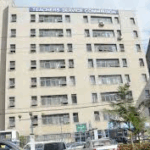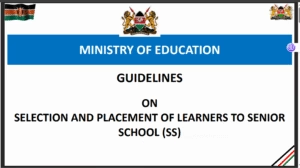The Kenya Union of Post Primary Education Teachers (KUPPET) has voiced strong opposition to the government’s proposed revision of 44 hardship zones, a move that threatens to slash hardship allowances for educators.
The union has criticized the recent announcement by Prime Cabinet Secretary Musalia Mudavadi regarding the removal of certain areas from the hardship designation, labeling it an overreach that lacked any genuine public consultation with the teachers who will be impacted.
KUPPET has described this initiative as “unilateral and illegal,” warning that they may pursue legal action if the government goes ahead with the changes. They emphasized that the hardship allowances are hard-won benefits established through a Collective Bargaining Agreement (CBA).
“Legally, the existing hardship allowances for teachers cannot be altered by mere executive decree,” asserted KUPPET Secretary General Akelo Misori during a press conference on Wednesday.
“These allowances are protected by Legal Notices No 534 of 1998 and No 196 of 2015, as well as collective bargaining agreements negotiated with the Teachers Service Commission (TSC). A Minister cannot revoke a benefit that was never theirs to grant.”
KUPPET also challenged Mudavadi’s assertion that cutting hardship allowances would save the government Ksh.6 billion annually, claiming it is based on an unpublished report from an Inter-Agency Technical Committee under the Ministry of Public Service, Performance, and Delivery Management.
Misori demanded the immediate release of this report, insisting it must undergo public examination before any policy alterations are made.
“We urge Mudavadi to disclose the report and allow stakeholders to review it before rushing into policy decisions,” Misori stated.
According to the KUPPET Secretary General, any changes to hardship zones must adhere to established legal and statistical standards set by the Kenya National Bureau of Statistics (KNBS), which include factors such as access to water, food, social services, climate, security, and poverty levels.
The union also pointed out that some regions have seen deteriorating conditions and should be added to the hardship list instead.
“The National Assembly, after considering public petitions, has recommended that new areas, including Chepalungu, Chonyi, Nyatike West, Nyatike North, Nyatike South, and Rachuonyo North Sub-Counties in Bomet, Kilifi, and Migori counties, be officially recognized as hardship zones,” Misori noted.







